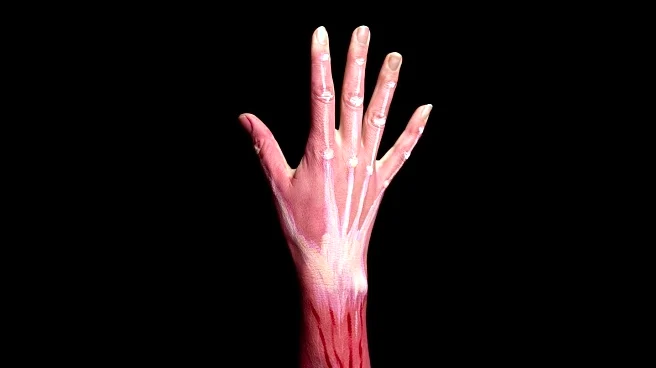What's Happening?
Science writer Mary Roach discusses the human body's remarkable ability to regenerate and replace parts in her latest work, 'Replaceable You.' Roach delves into the history of body part replacement, from ancient prosthetics to modern advancements in regenerative medicine. Her exploration includes the science behind the body's 'gooey bits and pieces' that perform daily miracles, highlighting breakthroughs in medical technology that allow for the replacement and repair of damaged tissues and organs. Roach's insights are shared in an interview with Terry Gross, marking Gross's 50th anniversary as host of Fresh Air.
Why It's Important?
Roach's examination of regenerative medicine underscores the transformative potential of medical science in improving human health and longevity. As regenerative technologies advance, they offer hope for treating previously incurable conditions and enhancing the quality of life for individuals with chronic illnesses. The ability to replace or repair body parts could revolutionize healthcare, reducing the need for invasive surgeries and long-term treatments. This has implications for medical research, healthcare policy, and patient care, as the focus shifts towards innovative solutions for maintaining and restoring health.
What's Next?
The field of regenerative medicine is poised for significant growth, with ongoing research exploring new techniques and applications. Future developments may include more sophisticated methods for tissue engineering and organ replacement, potentially leading to widespread clinical adoption. Collaboration between scientists, healthcare providers, and policymakers will be crucial in advancing these technologies and ensuring their accessibility to patients. Public interest and investment in regenerative medicine are likely to increase as awareness of its benefits grows.
Beyond the Headlines
Roach's work highlights the ethical and cultural dimensions of regenerative medicine, as society grapples with the implications of altering natural biological processes. Discussions around the accessibility and affordability of these technologies may arise, influencing healthcare equity and policy decisions. Additionally, the narrative of human resilience and adaptability could inspire broader societal shifts in attitudes towards health and wellness, emphasizing proactive and preventive care.










